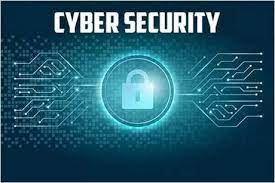
Cyber Security
Cyber security: is the application of technologies, processes, and controls to protect systems, networks, programs, devices and data from cyber-attacks.
It aims to reduce the risk of cyber-attacks and protect against the unauthorised exploitation of systems, networks, and technologies.
Cyber security is the practice of defending computers, servers, mobile devices, electronic systems, networks, and data from malicious attacks. It's also known as i
Cyber Security
1. Introduction to Cyber Security
a. What is Cyber Security
b. Common types of Cyber Security Threats
c. What Cyber Security can prevent
d. Careers in Cyber Security
e. Impact of Cyber Security on your business
f. How to minimise the impact of Cyber Attack on business
g. Surface Web, Deep Web, Dark Web & Darknet
h. Cyber Security Principles
i. Case Study
j. Types of Hackers
k. Defence in depth
l. Types of Security Policy
m. Vulnerability Assessment
n. Penetration Testing
2. System Hacking & Securing Operating Systems
a. Nontechnical Attacks or Non-Electronic Attacks
b. Active Online Attacks
c. Passive Online Attacks
d. Spywares & Key loggers
e. Steganography
f. Steganalysis
g. Guidelines To Secure Windows OS
3. Malware Threats
a. What is Malware
b. Categories Of Malware
c. Common Ways Malware Infects your Computer
d. Computer malware Symptoms
e. ways to prevent malware infection
4. Network Sniffing
a. What is Network Sniffing?
b. Network Sniffing can
c. How a Sniffer works?
d. Protocols which are affected by Sniffing
e. Hardware Protocol Analyzers
f. How to Defend Against Sniffing
5. Web browser Security
a. Securing Web browsing
i. VPN
ii. Proxy Server
b. TOR
c. Session Hijacking
d. Countermeasures
6. Securing Email Communications
a. Email Footprinting
b. Email Encryption
7. Social Engineering
a. Social Engineering Concepts
b. Impact of Attack on Organization
c. Human Behaviours Vulnerable to Social Engineering attacks
d. Factors that make companies vulnerable to attacks
e. Social Engineering Prevention
f. Social Engineering Techniques
g. How to avoid being a victim
h. What can you do if you are a victim
i. Identity Theft
j. Countermeasures
8. DOS/DDOS Attacks
a. DoS/DDoS Concepts
b. Botnet
c. Counter-measures
9. Securing Mobile Devices
a. Mobile Security - Attack Vectors
b. Consequences of Attack Vectors
c. Mobile Spam
d. How to Secure iPhone and iPad Devices
e. How to Secure Android Devices
f. How to Secure Windows Device
10. Securing Wireless Networks
a. Wireless Concepts
b. Wireless Encryption
c. Best practices to improve the security of your wireless network
d. Wireless Threats
e. Counter-measures
11. Securing The Cloud
a. Introduction to Cloud Computing
b. Cloud Computing Threats
c. Cloud Computing Attacks
d. Cloud Security
12. Cryptography
a. Cryptography Concepts
b. Encryption
c. Types of Encryption
d. Diffie-Hellman Key Exchange
e. Cryptographic Hash Functions
f. Digital Signatures
g. Digital Certificates
h. Cryptography Tools
i. Disk Encryption
13. Data Backup and Disaster Recovery
a. Data Backup Concepts
b. Types of Data Backups
c. Windows Backup and Restore Procedures
d. Secure Data Destruction
14. Information Security Law & Standards
Enroll For Course Now